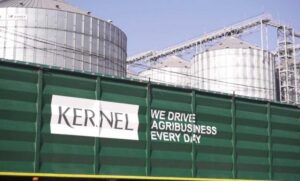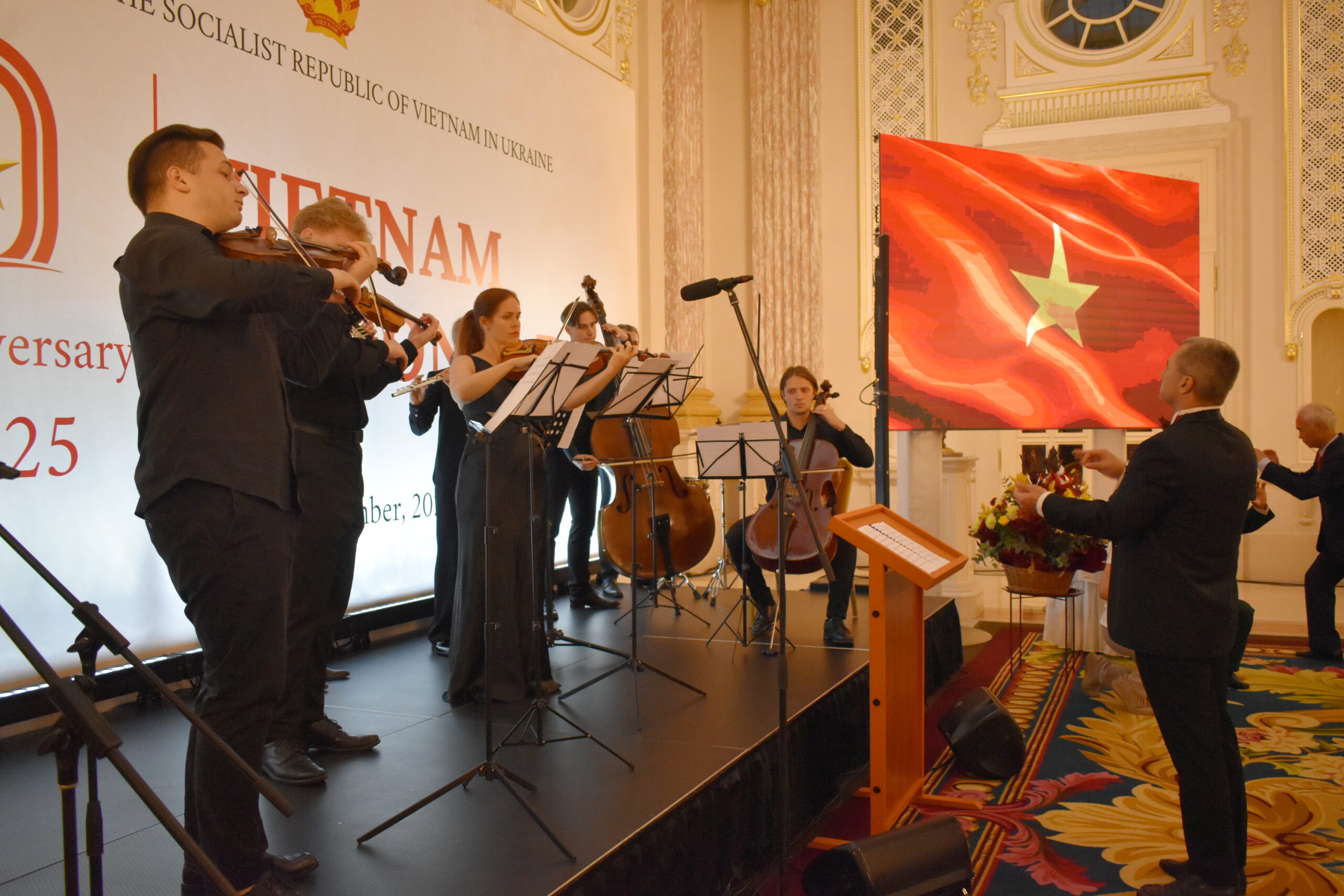
The current education system in Ukraine is hindering investment and business development and needs to be changed, according to Konstantin Efimenko, president of the pharmaceutical company Biofarma Plasma.
“In order for us to implement changes and invest $500 million over seven years, the education system needs to be fundamentally changed,” he said at the Kyiv International Economic Forum (KIEF) on Thursday.
Yefimenko noted the negative consequences for primary schools of online learning, which has been practiced in Ukraine for the past six years.
“That’s why we’ve completely lost the school system. Today, we’re getting kids with absolutely zero knowledge, and we need to understand that in order to understand where we are,” he said.
Yefimenko stressed the need to invest in education and review curricula.
“We need to change the education system, we need to remove all these lessons on happiness, some psychological lessons, and bring mathematics, chemistry, and biology back to school,” said the businessman and former Minister of Transport and Communications.
In addition, Yefimenko stressed the need to upgrade university teaching laboratories.
“I visited almost all the universities in Kyiv where chemistry and biology are taught. And I will say this: all their laboratories became obsolete 34 years ago. Everything there related to chemistry, biology, and physics should be collected and thrown away. The entire university base is worse than a single Biofarma laboratory, in which we invested $25 million. But let’s think about it: a peripheral company from Bila Tserkva has a better laboratory base than all universities, including national ones. How can this be acceptable?” he said.
Yefimenko noted the high demand for qualified personnel: “We need people, but we can’t train them at the trolleybus stop. We need to buy chromatographs, we need to buy cytometers, we need to find equipment and connect it. And we don’t have that.”
“We have created two schools because we understand that there is no school education. We have created our own department at Shevchenko University. There are now 15 children studying there. I find the teachers myself and pay them myself, which costs more than $1 million a year. We are now publishing textbooks. The only thing more important than this is what is happening on the front line,” he said.

Apple Inc. intends to continue increasing investment in business development in China and further strengthening cooperation with the aim of achieving mutually beneficial development, said the company’s chief executive Tim Cook at a meeting with China’s Minister of Industry and Information Technology Li Lichen.
The minister noted that China’s massive domestic market and comprehensive industrial system have enormous potential in terms of investment and consumption, according to Xinhua News Agency.
“We hope that Apple will continue to develop the Chinese market, actively participate in China’s reindustrialization, and work with Chinese companies to promote innovative development across the entire production chain,” Li Lichen said.
He added that China is committed to a policy of openness to the outside world, intends to promote the application of intelligent technologies in industrialization and the intelligent transformation of industry, and will contribute to the creation of a favorable business environment for enterprises with foreign capital participation, including Apple.

According to the annual report published on the WSE, the Kernel agricultural holding reduced its capital investments in the 2025 financial year by almost half — to $73 million compared to $143 million a year earlier.
According to Andriy Verevsky, 2025F was one of the most difficult periods: due to poor harvests and reduced stocks, farmers held back their products in anticipation of price increases.
“The EBITDA margin fell from $121 to $66 per tonne as a result of aggressive behaviour by producers who speculated on future prices,” he said.
Kernel is Ukraine’s largest exporter of agricultural products, controlling about 10% of the global sunflower oil market and 27% of Ukrainian exports. Its main assets are terminals in the Black Sea basin, oilseed processing plants, and a logistics network across the country.

Since the beginning of 2025, companies operating in the stablecoin segment have attracted investments totaling $621.8 million, which is seven times more than the result for the whole of 2024 ($84 million), according to data from Defi Llama.
The largest round was financed by Hong Kong-based OSL Group, which received $300 million in July for international expansion.
“There is a real buzz around stablecoins right now, and this hype is entirely justified,” said Anna Shtebl, CEO of the Confirmo payment platform.
Experts attribute the growing interest to breakthroughs in the regulatory sphere. The decisive factor was the passage of the GENIUS Act in the US, which, according to MNEE CEO Ron Tarter, gave “the green light to corporate America, legalizing the industry.”
Against this backdrop, the market capitalization of stablecoins exceeded a record $297 billion. Coinbase predicts that by 2028, the figure will reach $1 trillion.
Another indicator was the IPO of issuer Circle in June: the company raised $1 billion, and its shares are now trading at $144, according to Yahoo Finance. Taking into account the financing of Circle and Figure Technologies, which Defi Llama attributes to the CeFi and RWA sectors, the total amount of funds raised exceeded $2.4 billion.
Market leaders Circle and Tether are facing increasing pressure. Fintech giant Stripe and major Wall Street players have announced their own “stablecoins.” Societe Generale’s crypto division (SG-FORGE) introduced the USDCV token, and JPMorgan confirmed the launch of the JPMD coin on the Base blockchain. According to the WSJ, Bank of America, Wells Fargo, and Citigroup are also considering creating their own digital assets.
“Institutional investors see stablecoins as the building blocks of digital finance,” said Zerion co-founder Evgeny Yurtaev.
In August, a number of banking associations criticized the GENIUS Act, saying it gives crypto companies an unfair advantage, particularly through the ability to pay interest to stablecoin holders. Banking lobbyists estimate that this could cause an outflow of more than $6 trillion in deposits.
Coinbase called these concerns a “myth.” The company’s policy director, Faryar Shiraz, noted that banks are trying to preserve their profits from transaction fees, which bring in about $187 billion annually.
Earlier, Standard Chartered analysts reported that the bank’s customers are increasingly preferring stablecoins over Bitcoin.

The average investment in hotel real estate in Ukraine has effectively doubled since 2022, according to Yevgen Kudryavchenko, a partner at Apartel Resorts, in an interview with Interfax-Ukraine.
According to him, despite the war and serious risks, investors have not only stayed in the market but are also ready to invest more in apart-hotels and hotel complexes. “People are counting on the long term. Despite the martial law, investments are coming in, and they are becoming more ambitious,” Kudryavchenko emphasized.
The expert noted that the increased interest is linked to hopes for post-war economic recovery, growth in domestic tourism, and the return of foreign guests.
Apartel resorts is a development company specializing in apart-hotel and hotel real estate projects in Ukraine.

During a reception in Kyiv to mark the 80th anniversary of Vietnam National Day, Pham Hai, Ambassador Extraordinary and Plenipotentiary of the Socialist Republic of Vietnam to Ukraine, emphasized that cooperation with Ukraine has significant potential in the areas of economy, technology, and culture.
“Over the past decades, Vietnam has achieved significant success in political, economic, and social development. In 2025, our GDP is projected to reach approximately $510 billion, and foreign trade turnover in 2024 exceeded $800 billion. Vietnam is among the 35 largest economies in the world and among the top 20 leading exporters,” the diplomat noted.

The ambassador said that despite difficult conditions, bilateral trade between Vietnam and Ukraine is showing positive dynamics: in the first half of 2025, its volume increased by 30% to $560 million.
He separately emphasized the role of the Vietnamese community in Ukraine, which numbers more than 800 people and acts as an “important bridge of friendship between the peoples.”
“We highly appreciate the contribution of Ukrainian specialists to the development of Vietnam after the war, as well as the support of our diaspora in Ukraine, which is actively integrated into local society while preserving its cultural identity,” the ambassador said.

Diplomatic relations between Ukraine and Vietnam were established on January 23, 1992. The Vietnamese Embassy in Kyiv opened in 1993, and the Ukrainian Embassy in Hanoi opened in 1997.
Vietnam’s economy (as of 2025)